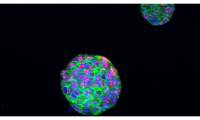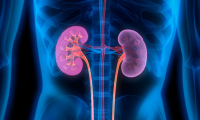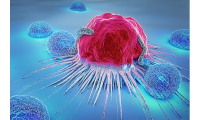-
Innovate UK grants funds for breast cancer therapy project
- Source: https://www.pharmaceutical-technology.com/news/innovate-uk-funds-breast-cancer/?cf-view
- 408
- February 14, 2024
-
NHS launches Pharmacy First to treat seven common conditions
- Source: https://healthmedia.blog.gov.uk/2024/02/01/pharmacy-first-what-you-need-to-know/
- 453
- February 14, 2024
-
MRC Laboratory of Medical Sciences worth £120m opens on ICL campus
- Source: https://pharmatimes.com/news/mrc-laboratory-of-medical-sciences-worth-120m-opens-on-icl-campus/
- 502
- February 14, 2024
-
Everly Health Partners With National Kidney Foundation, Expands Kidney Health Testing Suite
- Source: https://medcitynews.com/2024/02/kidney-disease-home-testing/
- 383
- February 13, 2024
-
Why One Google Cloud Exec Thinks HHS’ New Cybersecurity Guidelines Are A Step In The Right Direction
- Source: https://medcitynews.com/2024/02/google-cloud-hhs-cybersecurity/
- 366
- February 13, 2024
-
MHRA agrees licence change for Pfizer-BioNTech’s Comirnaty vaccine
- Source: https://www.pharmaceutical-technology.com/news/mhra-licence-pfizer-biontech-vaccine/?cf-view
- 347
- February 13, 2024
-
Cancer treatment could identify patients most likely to respond to cancer drugs
- Source: https://actionkidneycancer.org/cancer-treatment-could-identify-patients-most-likely-to-respond-to-cancer-drugs/
- 370
- February 13, 2024
-
Vicore licenses idiopathic pulmonary fibrosis therapy to Nippon in Japan
- Source: https://www.pharmaceutical-technology.com/news/vicore-licenses-idiopathic-pulmonary-fibrosis-therapy-to-nippon-in-japan/?cf-view
- 441
- February 12, 2024
-
Study reveals AI can predict patients’ survival in glioblastoma
- Source: https://pharmat.com/news/study-reveals-ai-can-predict-patients-survival-in-glioblastoma/
- 323
- February 12, 2024
-
Groundbreaking CRISPR Technology Could Revolutionize Diagnosis of Genetic Diseases
- Source: https://www.labmedica.com/molecular-diagnostics/articles/294800054/groundbreaking-crispr-technology-could-revolutionize-diagnosis-of-genetic-diseases.html
- 576
- January 31, 2024
your submission has already been received.
OK
Subscribe
Please enter a valid Email address!
Submit
The most relevant industry news & insight will be sent to you every two weeks.













